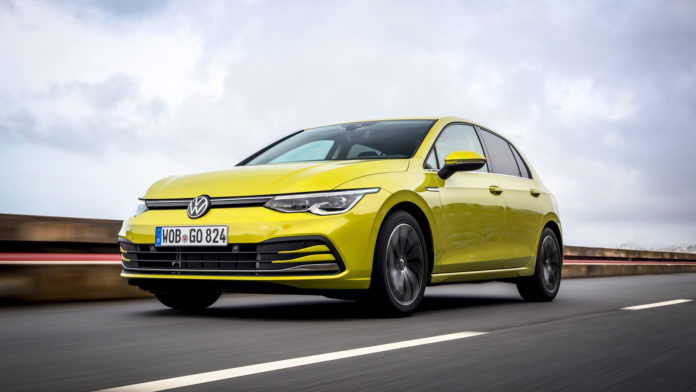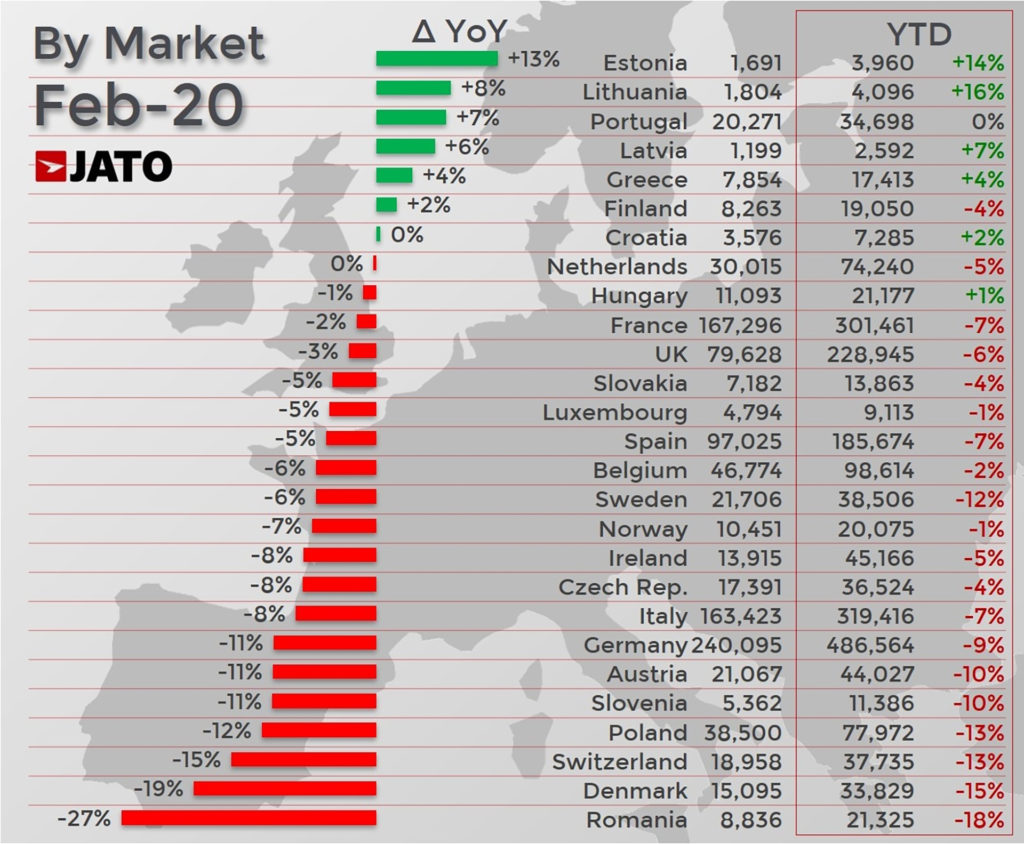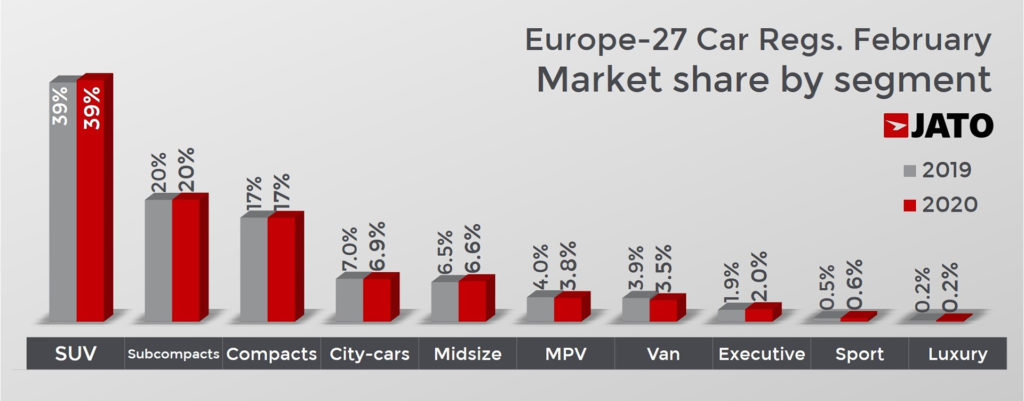
The decline of the European new car market has continued throughout February. According to JATO Dynamics data, 1,063,264 units were registered last month, compared to 1,143,852 in February 2019.
This equates to a decline of 7.0%, as last month saw the lowest number of registrations since 2015 – when only 955,113 units were registered.
This aligns to the negative results seen in January when volume fell by 7.6%. Thus, the first two months of this year, have already seen a cumulative fall in registrations of 7.3% to 2,194,706 units.

Felipe Munoz, global analyst at JATO Dynamics, commented: “The situation is rapidly deteriorating in Europe due to complex regulation, lack of available homologated cars, and increasing pressure on the economy. All of these factors are having a detrimental impact on consumer confidence.”
As of February 29th, 2020, our data has shown that the impact of Covid-19 has yet to hit the European automotive market. As although registrations only increased in 6 markets, this made up just 4% of total volume for the month.
Against this negative backdrop, electrified vehicles were once again the outlier in the industry. Their registrations jumped from 75,400 units in February 2019 to 135,500 units last month.
The increase of over 80% came at the expense of diesel and petrol cars who saw significantly fewer registrations.
Munoz added: “So far this year, electrified vehicles have been the only lifeline for manufacturers operating in Europe. This is good news, as the industry’s electrification plans have finally seen a positive response from consumers.”

Furthermore, the volume of EVs more than doubled in Germany and France – their biggest markets.
In terms of market share, EVs represented 75% of all passenger cars registrations in Norway, 33% in Sweden, 31% in Finland, 22% in Netherlands and 17% in Hungary. France leads among the big 5 markets, with an EV penetration of 14%, against 13% in the UK, 11% in Germany, 10% in Spain, and 8.6% in Italy.
As EVs have increasingly become a viable alternative to gasoline and diesel cars, SUVs are now struggling in the competitive environment. Registrations for SUVs fell by 1.7% to 415,300 units, taking the year-to-date total to 865,500 units, down by 1.4% from last year.
The fall in registrations was due to the compact SUVs, declining by 3.7% in contrast to the strong growth experienced by large SUVs, who saw an increase of 17%.
Although there was a decrease in SUV registrations their market share did in fact increase due to the overall downturn of the market.

Perhaps surprisingly, midsize cars posted the highest growth among all segments. Thanks to the BMW 3-Series, boosted by the new generation, and the Volkswagen Passat. Their combined registrations made up 31% of the whole midsize segment volume.
Unlike last year, the positive results for midsize cars were not thanks to the Tesla Model 3, whose volume actually fell by 6%.
Their global sales totalled 18.85 million units, equating to one in four of the units sold for passenger cars. However, their volume fell by 6.8%.
Vans also saw an increased in registrations, coming very close to beating the market share of MPVs, who experienced a decrease of 27%.
The negative landscape also affected the model ranking. The Volkswagen Golf was dethroned by the Renault Clio as the top-selling car in Europe, as the new generation hit the dealers.
This was due to Renault Clio’s new model having been available to the market for a longer period of time. Other changes within the top 10 included the Fiat Panda moving into the 5th position, and SUVs falling from the rankings entirely.

Big improvers for the month included the Fiat 500, BMW 3-Series, Volkswagen Passat, Hyundai Kona, BMW 1-Series, Audi A4, Volvo XC40, Citroen C5 Aircross.
Among the latest launches, it is important to mention the 13,600 units registered by the Toyota Corolla, 11,600 for the Volkswagen T-Cross, 7,500 units of the Ford Puma, 6,700 units for Skoda Kamiq, 5,100 units for Skoda Scala, and 4,600 units of the Mazda CX-30. Finally, the Audi Q3 Sportback registered 3,900 units, Kia Xceed 3,700 units, and both the Audi E-Tron and DS 3 Crossback registered 2,300 units each.







